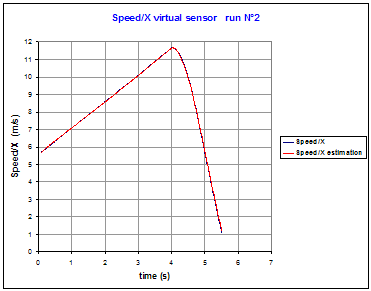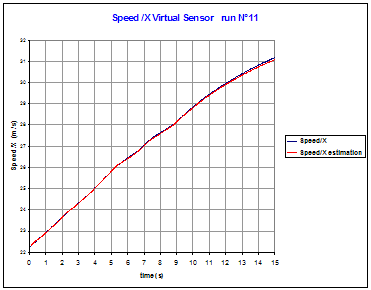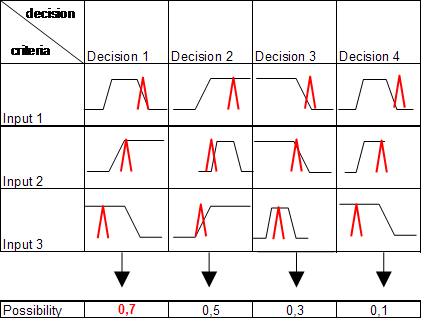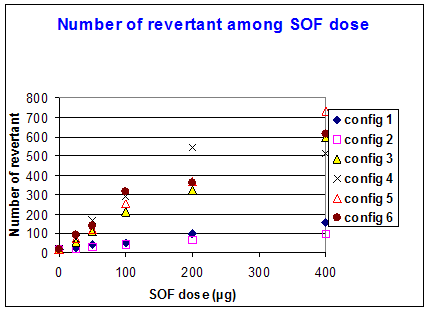


Copyrights NEXYAD 2005-2006 all rights reserved
Terms of use of images and graphics copied from this page : Policy
keywords : virtual sensors, generalized car dynamics virtual sensor, non linear dynamic systems modeling, defects detection and recognition, intelligent airbag triggering, statistics for epidemiology, abnormal facts detection, process monitoring, control and regulation, cylinder head quality control, swirl prediction, exhaust estimation,
Pure technical studies

History
Technical Applications
Virtual sensors (kalman, luenberger, neural networks, ...)
300 tracks virtual sensor for car dynamics
Non linear dynamic system modeling
Defects detection and recognition
Intelligent airbag triggering
Statistics for epidemiology
Rare/abnormal facts detection
Control and regulation
Cylinder head quality control : swirl prediction
Exhaust estimation of a machine element
SALES/MARKETING APPLICATIONS :
Turnover forcasting
Pricing

History
|
NEXYAD main
founders, Pierre DA SILVA DIAS and Gérard YAHIAOUI were involved
in the 1890's
in car industry research studies such as road detection ("Texture-based
Image Segmentation for Road Recognition with Neural Networks", G.
Yahiaoui,
M. de Saint Blancard, Sixth international conference on neural networks
and
their industrial & cognitive applications NeuroNîmes93, EC2,
Nîmes, 1993 ),
obstacle detection, or car dynamics modeling. Their know-how was mainly
:
- signal theory - artificial vision - statistics - neural networks - applied maths |
They also worked for military
applications (detection, pattern
recognition, tracking, ...).
This explain why there is a strong "on-board " culture at NEXYAD, even if the team also works on other kinds of applications. We show below some examples of pure technical studies both in technical and in marketing fields. |
Technical Applications
Virtual sensors (kalman, luenberger, neural networks, ...)
|
NEXYAD developed many virtual sensors applications,
involving different
kinds of applied maths methods such as Kalman filters, extended kalman
filters, Luenberger observers, neural nets, fuzzy logic-based
ensemblist methods, ...
Example : "true speed" of the car reconstructed from standard on board sensors such as accelarations, wheels speed, ... (for various trajectories and grips)  |
  |
300 tracks virtual sensor for car dynamics
| NEXYAD developed, in partnership with the french research
company SERA CD,
a 300 tracks virtual
sensor for car dynamics. This system is composed of two parts : - a model of the car's behaviour (CALLAS software developed by SERA CD) : a 17 mechanical degrees of freedom model, - a re-adjustment system (developed by NEXYAD) : re-adjustment of the model parameters presets, in real time, in order to fit into real world observations |
The model runs in real time an on-board simulation of the
car. The
NEXYAD re-adjustment system computes presets of the model in real time
in order to let the model and the real car behaviours match.
The 300 internal variables of the CALLAS model are then available in
real time as
300 virtual measurement tracks.
|
Non linear dynamic system modeling
| NEXYAD worked on many models for non linear systems : - classical differential equations models - neural nets Example : tire model : maximum adherence among depth of water for several speeds |
 |
Defects detection and recognition
|
NEXYAD developed several industrial pattern recognition
applications,
from occupant recognition in cars (using pressure maps) to defects
detection and recognition is glass (for bottles factory), or crack
detection in steel materials, ...
Example : defects detection in glass (image
processing, eigen vectors analysis, neural
networks, bayesian networks, statistics, fuzzy decision arrays, texture
analysis - covariance, fractals )
|

  |
Intelligent airbag triggering
| NEXYAD developed an intelligent airbag triggering system :
from a
pressure map and other sensors (such as temperature sensor), NEXYAD
developed a pattern recognition system that identifies the kind of seat
occupant : children, baby seat, adult, ... From this information, the
airbag triggering system can be modulated. This system is based on fuzzy logic decision arrays. |
 |
Statistics for epidemiology
| NEXYAD worked on many epidemiological studies such as : - influence of air pollutants on health modeling - indoor and outdoor pollution quantity estimation - biological experimentations results interpretation (statistics) |
Example : influence of pollutant on mutation (statistics, pls regression, generalized
linear model,
bootstrap, ...)
 |
Rare/abnormal facts detection
| NEXYAD developed methods (mainly probability-based decision
making
systems) in order to detect leads for intrusion into computers
networks and into computers,
defects in process monitoring, ...- |
These methods were applied to many field of application such
as : - fraud detection
|
Control and regulation
| NEXYAD worked on many advanced process control and
regulation
applications. In particular, NEXYAD applied maths methods that are
given to be "emergent", such as neural networks and fuzzy logic. |
One important point is the real-time ability of our methods
(even for strongly non linear systems, even in the case of non
separable non linearity). |
Cylinder head quality control : swirl prediction
| NEXYAD worked on an application that consists in analysing
the
geometric lenghts of a cylinder head : from these geometric lenghts,
the swirl characteristics are predicted and cylinder heads that don't
have the right estimated swirl are eliminated. |
NEXYAD intervention led to save 50% of refused cylinder
heads. |
Exhaust estimation of a machine element
| NEXYAD developed an on-board method that estimates the exhaust of machine elements of a car from regular sensors. Such an application can be used for instance in order to measure the characteristics of a driver during maintenance check up | The driver's use is interpreted into exhaust that may be upper or lower than the average driver's one : this may help for predictive maintenance. |
SALES/MARKETING APPLICATIONS :
Turnover forcasting
| NEXYAD developed several applications of turnover forecasting and simulation (for big firms). |
Pricing
| Princing is a very complicated task for big firms that has
thousands of
products or services items. NEXYAD developped applications of pricing
taking into account : - the desired marging, - the prices of competitors, |
- the previous prices (pricing cannot take customers by
surprise
: prices often must evolve "slowly"), - the public image of the trademark on its market (versus the public image of competitors), - the actual costs of products and services, |